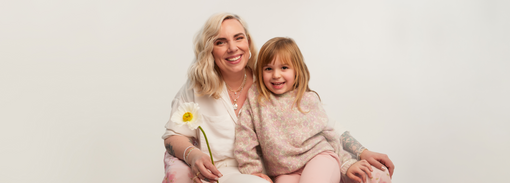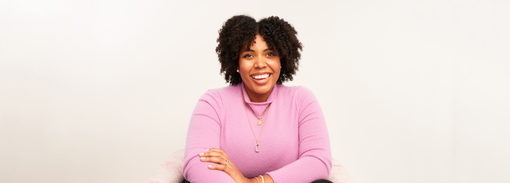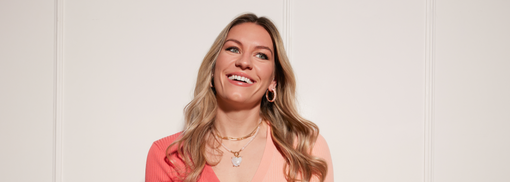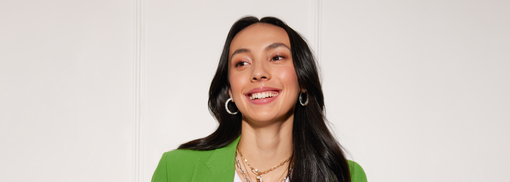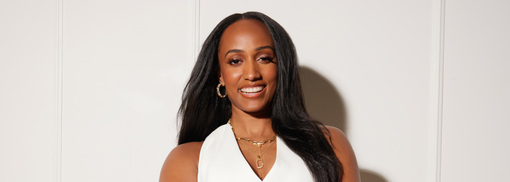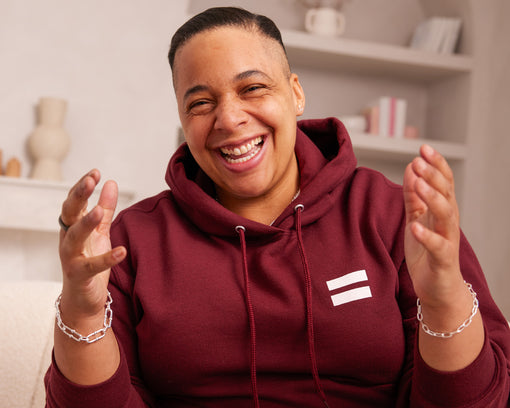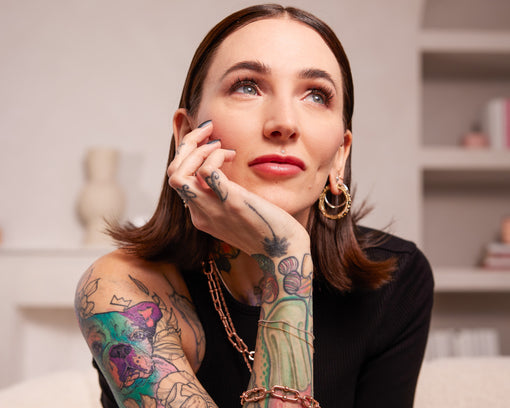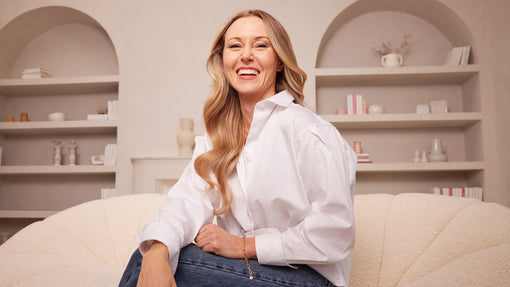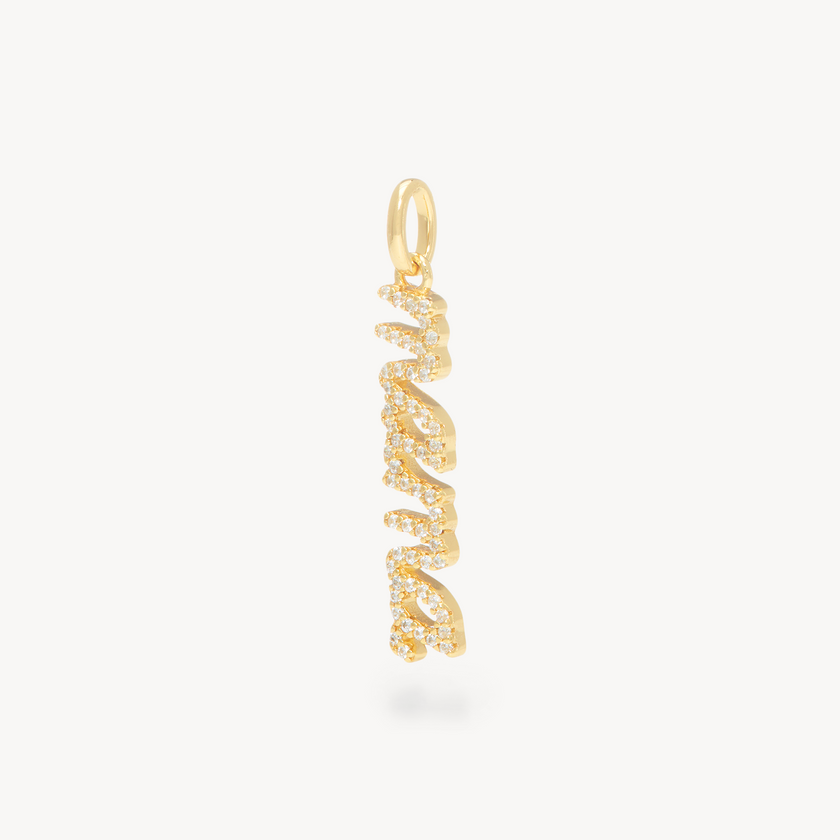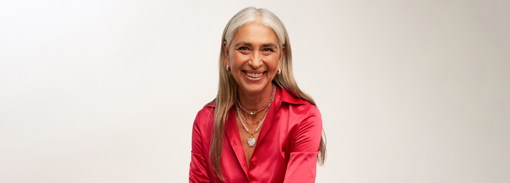
- Article published at:
Along with a lot of wisdom, Donna Ramsbottom shared stories with us about the sense of joy and purpose raising children has given her, and how motherhood has helped her reconnect with her cultural background. Let’s get to know her.
How has your relationship with your daughters changed over the years?
It has become more of a friendship. I love that they call me Donna and not Mom. There came a point in my life where my parent-years turned off and I wouldn't answer when they were calling me Mom. So they just started calling me Donna. It works. I really appreciate that my daughters listen to me, and I've learned to listen to them. They've taught me a lot, especially how to be carefree. To just live and not worry.
Do you have any favourite stories about your kids?
Doran was a competitive swimmer. She swam on the national team. When she was a baby and I was swimming laps in the pool, her dad was walking her along the edge of the pool, and she let go of his hand and jumped in the water. Her dad tapped me on the head and said, “You better go get your daughter.” I found her sitting at the very bottom of the pool, the deep end, like a little Buddha looking up at me. She was holding her breath and everything. She was only about a year old when that happened. So from then on, I made sure she knew how to float.
How did your life change when you became a mother?
It brought me so much joy and purpose. I just had so much fun. I got to be a little girl again, and I got to teach them everything I felt I missed out on. It's the best thing in the world. Motherhood brings out the best and teaches you so many things.
It's the best thing in the world. Motherhood brings out the best and teaches you so many things.
Earlier you mentioned you didn’t learn much about your cultural background when you were growing up. How did you teach your children about their heritage?
My dad was part Native and, growing up, I was told not to tell anybody that. So most of my life I've had to keep everything hidden. When I had my daughters, I wanted them to know all the stories that my dad had told. I wanted them to know he was part Native and that he taught me how to hunt, trap, and track. He taught me how to live off the land in the wild—what fruits to boil and what berries to pick. And also how to use herbs to get rid of poison ivy and things like that. So when my children were little, I started taking them to the beach or for walks in the bush to show them things in the wild.
One day when we were up north, I showed them rabbit tracks in the snow, and my baby—who was only about three or four—was standing on top of the snow and she started following the rabbit tracks into the forest and I had to go and catch her, but I sunk up to my waist in the snow while she was just walking on top of the drifts. It was pretty fun. Doran was always worrying that Charlotte was going to get lost in the bush.
Why was it important to you to share that cultural history with your daughters?
I had felt so much shame back then, and I'm going to cry right now because I felt like I wasn't part of my friends or part of the world. Now I'm so proud that I can say I have a little bit of Indigenous love in me, and I’m very grateful for the community it has brought. I'm learning things. I go to powwows now and that has been such an amazing, peaceful, wholesome fulfilling experience.
Now I'm so proud that I can say I have a little bit of Indigenous love in me, and I’m very grateful for the community it has brought.
We thought it would be fun to get to know Donna even further by interviewing her daughter, Doran Reed. What we discovered was a pretty special relationship based on life advice, fashion advice, singing in the car, and hiking through the woods. Let’s get to know her.
Can you tell us something you love about your mother?
I love her resilience. She’s had a lot of obstacles in her lifetime, and she’s shown me time and time again how to get over those obstacles. She’s never faltered. She’s never shown that the path is too difficult. She's always there, pulling herself back up and getting where she needs to go.
I love her resilience. She's always there, pulling herself back up and getting where she needs to go.
How would you describe your relationship with your mother?
I call her whenever I'm going to work. I call her whenever I need anything. She's my go-to. She's my mom. Like I'll send her an outfit photo and be like, “Does this look good?” It's really easy for me to go to her for any sort of advice. She always has the right answer for me.
What are three words that describe your mother?
Loving, thoughtful, incredibly-hardworking-slash-determined. I'm going to squeeze that in as a double whammy.
What's the best advice your mom has given you?
“You can be anything that you want to be because you are you.”
Do you want to give her an early Happy Mother’s Day message?
I love you, Mama. Happy Mother's Day. I'm so glad I get to do life with you. Thank you for being my mom.
I'm so glad I get to do life with you. Thank you for being my mom.
Do you have a favourite memory with your mom?
Every time we go on a big walk together. That's kind of like our hobby, especially since we moved here. We used to do big walks on the beach, but now we have the whole forest to explore and our dogs love to run together. So whether we're happy or sad, it's hike time. Let's go. We put on the boots and go as far north as we possibly can. Rain, shine, snow, sleet, we're out there in the bush, reconnecting with nature and one another. It's a really good time. We've cried, we've laughed, we've sung. We go through the whole Justin Timberlake bringing sexy back album and scream at the top of our lungs in the car together.
So it's just the feeling you get when you're with each other and it’s just love encapsulated in the moment.
By: Carter Selinger
Learn More
